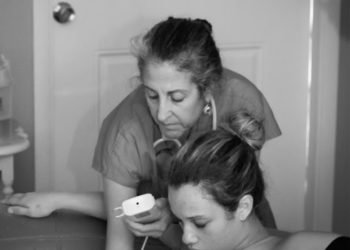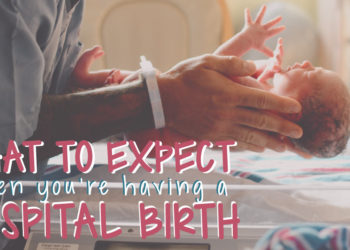Regardless of your view on pregnancy, one thing’s for sure, it’s a life-changing experience. Whether you’re familiar with pregnancy, or this is your first go-round, this is a journey that requires careful attention and care. Both the mother and baby can greatly benefit when wellness is prioritized.
While nothing can be guaranteed, there are plenty of steps that you can take now to help ensure a healthier pregnancy for yourself. Educating yourself on what a healthy pregnancy includes will ensure smooth delivery while setting the foundation for a healthy life for your baby. Read on for healthy pregnancy tips on how to maintain your physical, emotional, and mental health during your voyage into motherhood.
Eat Nutritious Foods
During pregnancy, it is important to consume additional nutrients, vitamins, and minerals to aid the growth and development of the baby. Aside from prenatal vitamins, a balanced diet provides the necessary nutrients both mom and baby need during this time. This includes fruits, vegetables, lean proteins, whole grains, and healthy fats.
When those cravings kick in, and believe us, they will, it’s best to fight the urges. Processed foods, sugary snacks, and empty calories should be limited if not completely removed from your pregnancy diet. When in doubt, consult your doctor. Healthcare providers will assist in ensuring adequate amounts of folic acid, iron, and calcium are weaved into your nutrition plan.
Stay Hydrated
Staying hydrated is essential to a healthy pregnancy. Not only does water play a vital role in the development of the baby, but it helps prevent common pregnancy-related problems like constipation and swelling. It also helps to regulate the body temperature and maintain the amniotic fluid levels.
As a general rule, doctors recommend consuming at least 8-10 glasses of water per day. However, water intake may vary depending on your activity level, climate, and overall health. In addition to water, you can also include fresh fruit juices, coconut water, and herbal teas in your diet.
These beverages not only quench thirst but also provide essential vitamins and minerals that support fetal development. However, it is important to avoid caffeine and sugary drinks as they can have adverse effects on your health and the baby’s development.
Exercise Regularly
Exercising during gestation is highly beneficial for both the mother and the baby. Regular exercise can improve blood circulation, reduce stress, promote better sleep, and help prepare the body for labor and delivery. It can also help to manage weight gain and keep blood pressure and blood sugar levels in check.
It’s important to choose low-impact exercises that are safe for pregnant women. Walking, swimming, prenatal yoga, and Pilates are excellent options to consider. These exercises are gentle on the joints and help to improve flexibility and strength. Before starting any workout, you should always consult your doctor for approval. They may suggest modifications or provide specific guidelines based on your health condition and trimester. By staying physically active during pregnancy, your chances of a smoother pregnancy and easier labor vastly increase.
Get Enough Rest
During the 1st and 3rd trimesters, the body goes through numerous changes that can cause fatigue. This is due to hormonal fluctuations, increased blood volume, and the physical strain of carrying a growing baby. Getting enough rest is imperative during this time to support the body’s physical and emotional needs.
Experts recommend 7-9 hours of sleep per night for pregnant women. Taking a nap during the day can also help reduce fatigue and increase energy levels. Creating a sleep routine, and avoiding caffeine before bedtime can lead to improved sleep hygiene during pregnancy.
Manage Stress
Pregnancy is a significant life event that brings physical, emotional, and psychological changes to a woman’s life. These changes can cause stress, which can have negative effects on both the mother and the baby. Stress during pregnancy can increase the risk of preterm labor, low birth weight, and other complications.
Relaxation techniques such as meditation, deep breathing, and prenatal yoga have been proven to reduce stress levels in pregnant women. These techniques can help calm the mind and reduce anxiety. Prenatal yoga, particularly, is beneficial for pregnant women as it helps improve flexibility, strength, and balance.
Seeking support from family, friends, or a counselor can also help reduce stress levels during this time. Talking to someone who can understand and support you can help you better cope with the changes and challenges that come with pregnancy.
Attend Regular Prenatal Visits
Prenatal visits allow healthcare providers to monitor the growth and development of the baby while checking for any potential health issues along the way. By following medical recommendations for prenatal tests, vaccinations, and supplements, the mother can reduce the risk of complications during pregnancy and delivery.
Prenatal tests, such as ultrasounds and blood tests, can detect conditions such as gestational diabetes or preeclampsia early on, allowing for prompt treatment. It is important for pregnant women to attend all scheduled prenatal appointments to ensure optimal health for both themselves and their babies.
Prepare for Labor and Delivery
Preparing for labor and delivery is an essential part of a healthy pregnancy. Attending childbirth classes can help you understand the process and prepare you for what to expect. These classes can teach you relaxation techniques, breathing exercises, and other coping strategies to help you manage pain during labor.
It’s a good idea to create a birth plan to communicate your preferences for labor and delivery. This plan can include details such as who you want in the room, pain management preferences, and any special requests. Talk to your healthcare provider about pain management options that are available to you. They can provide guidance on which options may be best for you based on your medical history and personal preferences.
Bond with the Baby
Bonding with the baby during pregnancy is beneficial not only for the mother but also for the baby. It helps establish a strong emotional connection between the mother and the baby, which can have a positive impact on the baby’s development after birth.
There are various ways to bond with your little one. Talking to the baby, for example, helps the baby recognize the mother’s voice. Playing music and reading books are also great ways to bond with the baby. Involving the partner and family members in the bonding process can also create a supportive and loving environment for the baby. This can help the mother feel more relaxed and comfortable during pregnancy, which can have a positive impact on the baby’s health and development.
Achieve a Healthy Pregnancy with Midwife Support
In conclusion, a healthy pregnancy requires a holistic approach that includes nutrition, exercise, rest, stress management, prenatal care, and avoiding harmful substances. Following these tips can help ensure a healthy pregnancy and set the foundation for a healthy life for the baby. Remember, every pregnancy is unique. It’s essential to consult with a doctor or midwife to determine the best approach for you and your baby.

















